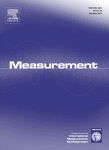 In 2014, researchers condemned the Spanish Government for “destroying the R&D horizon of Spain and the future of a complete generation” in the acknowledgment section of a paper about wireless networks.
In 2014, researchers condemned the Spanish Government for “destroying the R&D horizon of Spain and the future of a complete generation” in the acknowledgment section of a paper about wireless networks.
Three years later, the two last authors of the paper are protesting that protest, issuing a correction to alert readers that they did not approve the language. Here’s the text of the corrigendum notice, which mentions Juan M. Górriz and Javier Ramírez, both based at University of Granada:
The Prof. JM Górriz and Prof. J. Ramírez regret to have missed to add the below note in their article
Note: Prof. Juan M. Górriz and Prof. Javier Ramírez do not share this view about using research outcomes as a protest against any democratic government.
The authors would like to apologize for any inconvenience caused.
“RF fingerprint measurements for the identification of devices in wireless communication networks based on feature reduction and subspace transformation,” published in 2014 by Measurement, has been cited three times, once by the correction, according to Clarivate Analytics’ Web of Science.
Here’s the statement of interest from paper’s acknowledgement section:
This work has been carried out despite the economical difficulties of the authors’ country. The authors want to overall remark the clear contribution of the Spanish Government in destroying the R&D horizon of Spain and the future of a complete generation.
It’s unclear why Górriz and Ramírez issued the correction three years after the paper was published and how they missed the original note.
Both Górriz and Ramírez declined to comment.
We also reached out to the paper’s corresponding author, Pablo Padilla, based at the University of Granada, as well as the editor of Measurement, and the publisher, Elsevier, in late July. A spokesperson for Elsevier told us the publisher is still looking into the matter. We have not heard back from Padilla or the editor.
According to an article in EuroScientist, published earlier this month, in 2011 the Spanish government approved a law which aimed “to modernise and harmonise different aspects of scientific activity in Spain.” But, according to the article, the government never followed through on implementing the law, prompting hundreds of Spanish scientists to protest the situation and urge the government to follow through on its promise.
We’ve covered some unusual acknowledgements in the past. For instance, the authors of two opinion pieces published in 2015 in Science and Engineering Ethics thanked their respective universities “for encouraging research and publications in international journals of repute.”
Like Retraction Watch? Consider making a tax-deductible contribution to support our growth. You can also follow us on Twitter, like us on Facebook, add us to your RSS reader, sign up on our homepage for an email every time there’s a new post, or subscribe to our daily digest. Click here to review our Comments Policy. For a sneak peek at what we’re working on, click here.
I admire the creative way in which the authors have used the acknowledgement section of their paper to protest their government’s apparent dwindling support for science. However, while I fully empathize with their plight, I believe that that type of (political?) statement is inappropriate in a scientific journal. Such sections should be used exclusively to thank/identify those who aided/supported the work, whether the work was presented elsewhere, etc., etc. Authors should consult writing manuals for scientific papers or perhaps the journals’ ‘Instructions to Authors’ for further clarification about acknowledgement sections.
Actually, I can envision situations in which unusual events, even economic ones, which interfered with some specific aspect of the work should be identified. But, I don’t believe that general statements about economic conditions or about declines in governments’ support for science are justifiable in these sections. Heck, if these types of statements are deemed to be appropriate, we should expect to see in the coming weeks and months an explosion of these acknowledgments from authors from many corners of the globe. 🙂